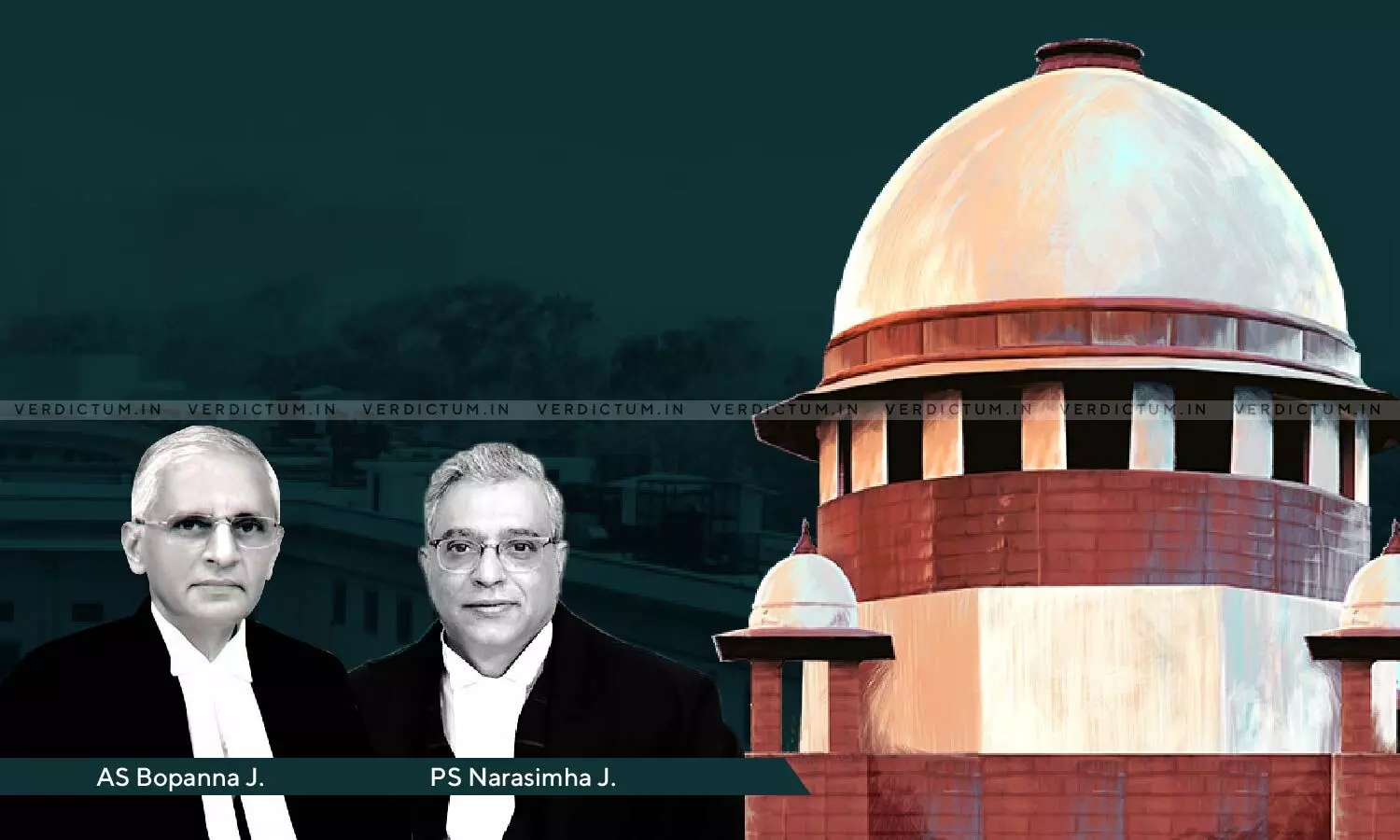
Contractual Terms Cannot Be Interpreted In Isolation, Must Be Understood As Intended By Parties: Supreme Court
 |
|The Supreme Court declined to adopt a textual interpretation of the contractual term "charges" and held that the expression "charges" cannot always be interpreted to include demurrages.
The Court held that the contractual terms cannot be interpreted in isolation and must be interpreted as intended by the parties to the contract.
The Bench of Justice AS Bopanna and Justice PS Narasimha observed-
"The expression "charges", stand alone, is not amenable to a precise meaning. Its dictionary meaning is open textured, defining "charges" as "any consideration that one must pay for goods and services provided". Therefore, the scope of the expression "charges" must be understood as intended by the parties to the contract. The process of interpretation, though the exclusive domain of the Court, inheres the duty to decipher the meaning attributed to contractual terms by the parties to the contract."
In the instant matter, the Food Corporation invited bids for transporting foodgrains from railway siding to food security depot on a regular basis for two years. The successful contractor deposited Rs. 44,95,000/ as security deposit, for execution of the contract.
However, the Corporation in 2016 issued a notice calling upon the contractor to reimburse the amount of demurrages imposed on it by the Railways for not unloading foodgrains from railway wagons within the "free time" specified. The Corporation attributed the said imposition of demurrages was caused due to the contractor's inability to readily provide trucks at railway sidings.
The issue dealt with by the Court was -
Whether the demurrages imposed on the Corporation by the Railways can be, in turn, recovered by the Corporation from the contractors as "charges" recoverable under clause XII (a) of the contract?
The Corporation under the contract empowered itself to recover damages, losses, charges, costs and other expenses suffered due to the contractors' negligence from the sums payable to them. The Court was deciding whether contractors' liability for "charges" will include demurrages or not.
Senior Counsel Neeraj Kishan Kaul appeared for the Appellant while Senior Counsel Sanjay Parikh appeared for the Respondents before the Apex Court.
It was argued before the Supreme Court that the expression "charges" in clause XII (a) of the contract includes demurrages, placing reliance upon precedents wherein demurrages were held to constitute a charge.
However, on the other hand, it was contended that contractors were not responsible for loading and unloading of foodgrains from railway wagons. Therefore, the event which led to the incurrence of demurrages, i.e., delayed unloading of foodgrains from railway wagons, was not within the scope of contractor's responsibilities.
After examining the contract in its entirety, the Supreme Court held that the parties did not intend to include liability on account of demurrages as part and parcel of the expression "charges".
The Court said,"the scope of the expression "charges" must be understood as intended by the parties to the contract". The Court did not adopt a textual approach for the interpretation of the contractual term "charges" and observed, "the decisions of this Court in Raichand Amulakh Shah and Trustees of the Port of Madras are of no aid, as they simply describe demurrages as a charge. Demurrage is undoubtedly a charge, however, such a textual understanding would not help us decipher the true and correct intention of the parties to the present contract."
"It is evident from the contractual provisions and also the admissions of the Corporation in written submissions, that the task of loading or unloading of foodgrains from the railway wagons was not a part of the contract. Thus, based on interpretation of the expression "charges" in the contractual context, we are of the opinion that it did not include liability on account of demurrages. Consequently, the Corporation cannot impose and collect demurrages from the contractors", the Supreme Court observed.
Earlier, the Single Judge and the Division Bench of the Tripura High Court had held that demurrages cannot be recovered as "charges" by the Corporation. The High Court has said that demurrages cannot be recovered as a charge by the Corporation as they were causally distant from the contractor's actions. Further, the Corporation had unilaterally determined and imposed demurrages on the contractor, which should instead be determined by a civil court.
In its order, the Supreme Court also clarified that other legal remedies available to the Corporation may be availed by it, including the institution of a suit for recovery.
Accordingly, the Court disposed of the appeals.
Cause Title- Food Corporation of India v. Abhijit Paul
Click here to read/download the Judgment